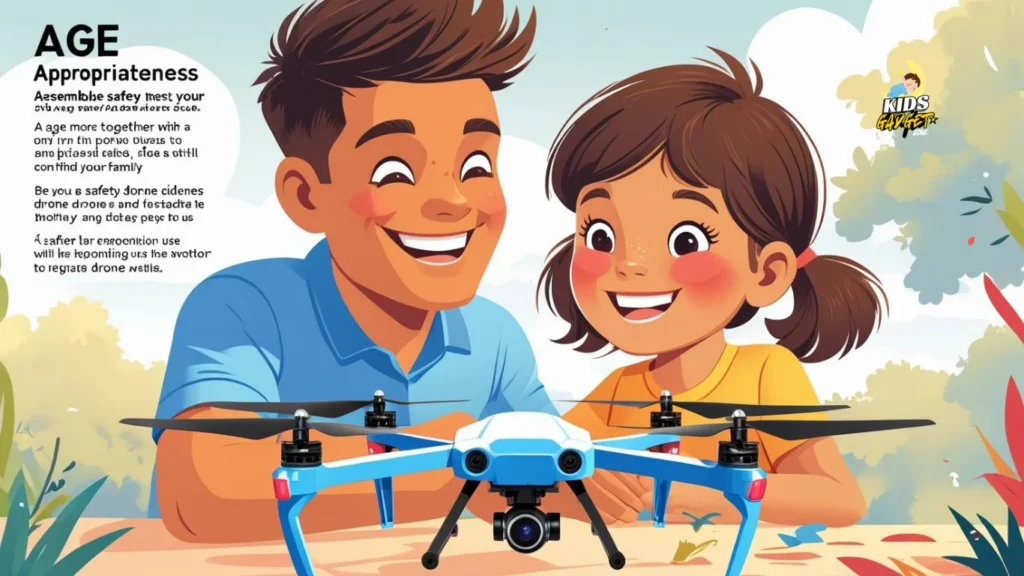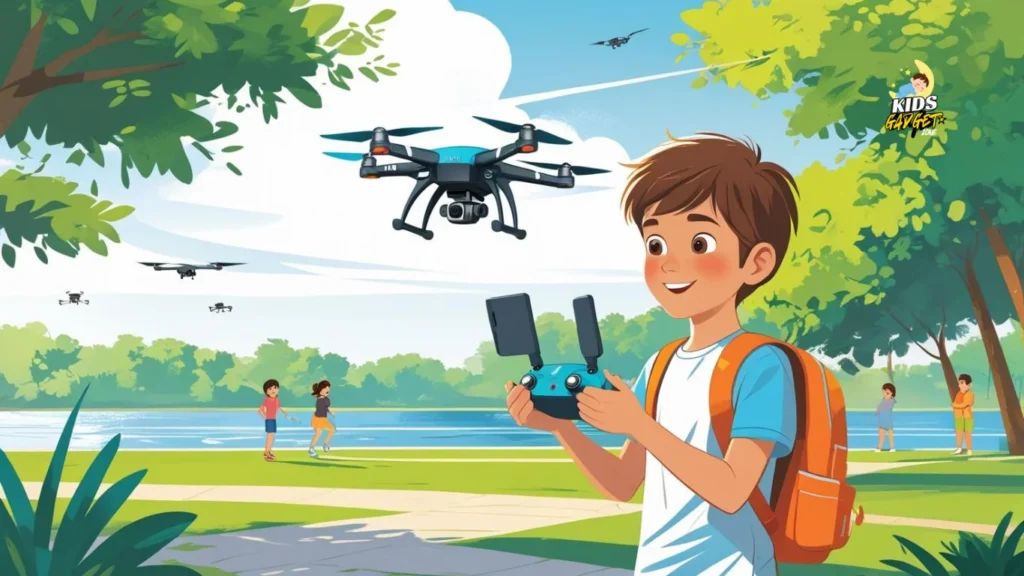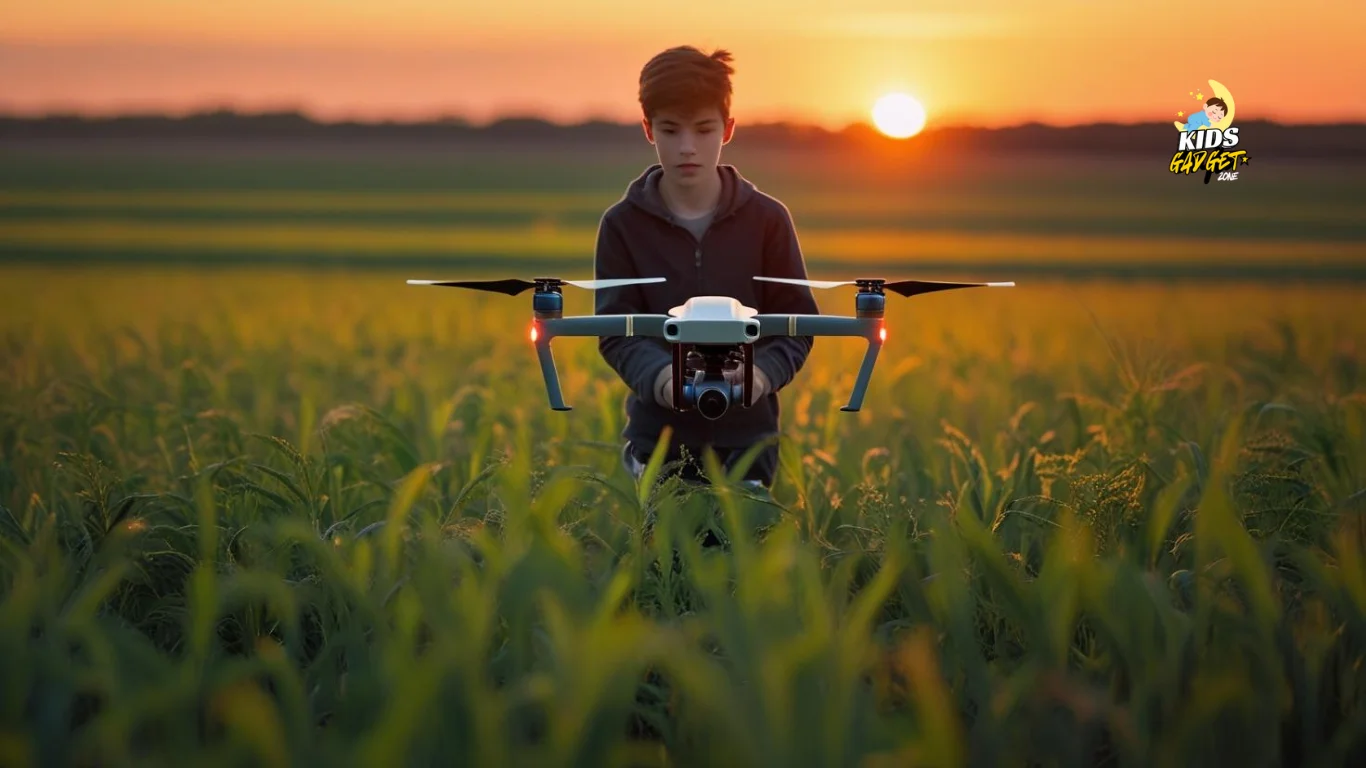My nephew, just ten years old, was captivated by the amazing aerial videos his older cousin took with a drone. He immediately wanted one too! But the question lingered: How old should a kid be for a drone? This isn’t just about age; it’s about safety, responsibility, and understanding the technology. This post will guide you through the considerations to help you decide when your child is ready for their own drone.
Drone Age Recommendations and Regulations
Determining the appropriate age for a child to operate a drone involves a blend of legal considerations and practical maturity levels. We’ll explore both, providing you with a clearer picture of what to expect and how to make an informed decision for your family.
Minimum Age Requirements
- Federal Aviation Administration (FAA) Regulations: In the United States, the FAA generally requires drone pilots to be at least 13 years old to obtain a recreational drone license. This doesn’t mean a 12-year-old can’t use a drone at all, but it heavily restricts where and how they can operate one. A parent or guardian must supervise the child in this scenario, effectively controlling the drone’s operation. This regulation primarily focuses on safe operation and responsibility.
- Manufacturer’s Guidelines: Most drone manufacturers have their own age recommendations, often starting around 12 or 14 years old. They factor in the complexity of the controls and the potential safety risks associated with operating their specific models. These recommendations are not legally binding but are designed to safeguard children.
- Parental Discretion: Ultimately, parental discretion plays the most significant role. Even if a child meets the legal and manufacturer requirements, parents should assess their child’s maturity level. Can they understand and follow safety instructions? Do they possess the necessary hand-eye coordination and attention span for the task? These factors are crucial.
Understanding Drone Technology
Before getting a drone, it’s essential to understand the technology involved. Drones are not simple toys; they are complex machines with multiple components and potential safety hazards.
- Flight Controllers: The flight controller is the drone’s “brain,” managing its movements through sensors and algorithms. Understanding its basic function is important for responsible flying. A 13-year old might only understand basic function, while a 16-year old might be more interested in how it integrates with other flight systems such as GPS or remote identification systems.
- GPS and Navigation: Most modern drones use GPS for navigation and location tracking. Understanding how this works is crucial for keeping the drone within a safe range and preventing accidents. This system is far too complex for many younger children to fully grasp.
- Batteries and Charging: Drone batteries require proper care and charging procedures. Misuse can lead to fire hazards. An understanding of battery safety is paramount. Children should be taught the importance of fully charging and properly storing these batteries.

Factors Beyond Age: Maturity and Responsibility
While age provides a benchmark, maturity and responsibility are equally, if not more, important. Let’s delve into the non-numerical factors that determine a child’s readiness for drone operation.
Responsible Drone Use
- Understanding airspace restrictions: Knowing where it is legal to fly a drone is critical. Flying near airports, stadiums, or other restricted areas is illegal and potentially dangerous. This should be a primary education point for young users.
- Respecting privacy: Drones should never be used to invade someone’s privacy. Children need to understand the ethical implications of aerial photography and filming.
- Emergency protocols: Children must know what to do if the drone malfunctions or loses its signal. Practice safe landing procedures.
Developing Necessary Skills
Operating a drone safely and effectively involves more than just pushing buttons; it requires specific skills that develop with age and practice. These skills often become clear as a child interacts with the device and practices with the controls.
- Hand-eye coordination: This is crucial for accurately controlling the drone’s movements and avoiding obstacles. Simple coordination games can help develop this skill long before a child gets a drone.
- Problem-solving skills: Drones can malfunction or encounter unexpected issues. The ability to troubleshoot and find solutions is essential.
- Attention to detail: Paying close attention to the drone’s status, battery level, and surroundings is vital for safe operation.
Types of Drones and Their Suitability for Children
Not all drones are created equal. The complexity and features vary greatly, affecting their suitability for different age groups. We will explore various types and their respective appropriateness for children.
Toy Drones vs. Advanced Models
The market offers a wide range of drones, from simple toy models designed for beginners to sophisticated devices with advanced features. Toy drones are generally more forgiving of errors. Advanced models often require a greater level of skill and understanding. A simple toy might be good for a 10-year old, while a more complex model will be best suited to someone 16 and older. This will depend on the child’s interests and skill levels.
- Toy drones: These are usually small, lightweight, and easier to control. They’re ideal for young children learning the basics of drone operation. Often less sophisticated software and easier controls make these good starting points.
- Advanced drones: These typically have more features, such as higher resolution cameras, longer flight times, and more advanced flight modes. These are better suited for older children and adults with more experience. Advanced models often have longer battery life, higher definition cameras, and the ability to perform more advanced aerial maneuvers.

Safety Precautions and Responsible Drone Ownership
Safety should always be the top priority when it comes to drone operation, regardless of the user’s age. Let’s explore some essential safety measures.
Essential Safety Tips
- Always supervise children: Never let a child operate a drone unsupervised, especially younger children. Adult supervision is critical for maintaining a safe flying environment. This is the most important aspect of safely operating a drone.
- Choose appropriate flight locations: Avoid flying near airports, power lines, or other hazards. Proper identification of legal and safe flight locations is critical.
- Understand and obey all local regulations: Research and understand all local laws and regulations regarding drone operation.
Debunking Common Myths About Drone Use
Myth 1: Any kid can easily fly a drone.
This is absolutely false. Drone operation requires hand-eye coordination, spatial awareness, and problem-solving skills that develop with age and practice. Younger children may lack these skills, making it difficult or dangerous for them to control a drone. The difficulty of operation varies by the model of drone itself.
Myth 2: Drones are only for tech-savvy people.
While an understanding of technology is helpful, it’s not a prerequisite. Many modern drones are designed with user-friendly interfaces and intuitive controls. The level of technical knowledge needed depends greatly on the specific model in question.
Myth 3: Accidents never happen.
Drone accidents are possible and sometimes unavoidable, no matter the pilot’s skill. Mechanical failures, unexpected weather conditions, or human error can all contribute to accidents. It is important to address the possibility of a malfunction.
FAQ
What is the legal minimum age to fly a drone in the US?
The FAA generally requires drone pilots to be at least 13 years old to obtain a recreational drone license. However, parental supervision is always recommended.
Are there any age restrictions for buying a drone?
While there aren’t federal age restrictions on purchasing drones, manufacturers often recommend age limits based on the drone’s complexity. Parents should check the manufacturer’s recommendations before purchasing.
What if my child is younger than 13 but wants to fly a drone?
You can still supervise them in flying a drone, making sure you’re in control of the drone. This requires responsible and attentive parenting. It’s crucial to ensure a safe flight environment and teach them about safety.
How can I teach my child about drone safety?
Start with the basics: airspace rules, battery safety, and emergency procedures. Use online resources, videos, and practice sessions to gradually build their skills and understanding.
What type of drone is best for a beginner?
Simple, toy-grade drones with intuitive controls are ideal for beginners. Look for models with features like automatic return-to-home and obstacle avoidance to add an extra layer of safety.
My child is 15; is it safe for them to fly a drone independently?
A 15-year-old might be ready, but responsible parenting still plays a crucial role. Make sure they understand all safety protocols and practice often before flying independently.
What are the consequences of violating drone regulations?
Consequences can vary depending on the violation, but they can include fines, suspension of drone operation privileges, or even criminal charges in severe cases. Familiarize yourself with the rules and regulations to avoid repercussions.
Final Thoughts
Deciding how old should a kid be for a drone isn’t about picking a specific number; it’s about assessing your child’s maturity, responsibility, and understanding of the technology and related safety guidelines. By carefully considering the factors discussed here, including the legal and manufacturer requirements, and fostering a strong understanding of safety and responsible drone operation, you can empower your child to enjoy this exciting technology while minimizing any potential risks. Take your time, choose wisely, and remember that ongoing supervision and education are key to safe and responsible drone use.

